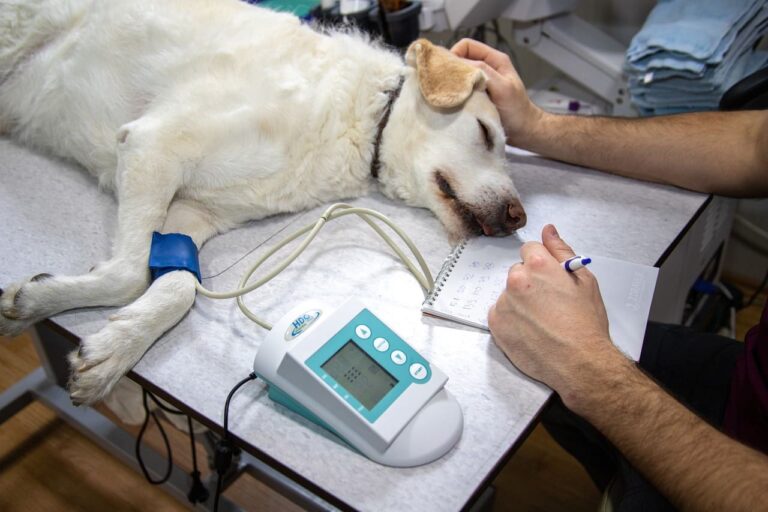Career as a Physician
Table of Contents
ToggleCareer as a Physician: Definition and Role.
A physician is a medical doctor who is trained to diagnose and treat illnesses, prescribe medications, and provide preventive care to patients. Their primary goal is to help people maintain good health and manage any medical conditions they may have, primarily focusing on non-surgical treatment of illnesses. The career as a physician involves a deep commitment to patient care, continuous learning, and adapting to advancements in medical science.
Specific Roles of a Physician
- Diagnosing Illnesses: Using medical knowledge and tests to identify what is causing a patient’s symptoms.
- Treating Diseases: Prescribing medications, therapies, or performing procedures to help patients recover from illnesses.
- Preventive Care: Advising patients on lifestyle choices, vaccinations, and screenings to prevent diseases.
- Patient Education: Teaching patients about their health conditions and how to manage them.
- Coordination of Care: Working with other healthcare professionals to ensure comprehensive treatment for patients.
- Research and Teaching: Some physicians conduct medical research or teach medical students and residents.
Role of a Physician in India
In India, the role of a physician is multifaceted and crucial due to the diverse and extensive population. Here are some key aspects:
- Primary Care: Physicians often serve as the first point of contact for patients seeking medical attention. They provide general health check-ups and manage a variety of common illnesses.
- Public Health: Physicians play a vital role in public health initiatives, such as vaccination programs, health education campaigns, and controlling the spread of infectious diseases.
- Specialized Care: Many physicians pursue further specialization in fields like cardiology, neurology, pediatrics, etc., to offer expert care in specific medical areas.
- Healthcare Accessibility: Physicians work in various settings including government hospitals, private clinics, and rural health centers to make healthcare accessible to all segments of the population.
- Community Health: In rural and underserved areas, physicians often act as community health leaders, addressing local health issues and improving overall community well-being.
Career Path and Advancement to Become a Physician in India
Choosing a career as a physician involves continuous learning and professional development. Here’s an in-depth look at the career pathway and opportunities for advancement:
A. Career Pathway
1. High School (Class 10 and 12)
- Focus on Science stream with Biology (PCB – Physics, Chemistry, Biology).
- Aim for high marks to qualify for medical entrance exams.
2. Medical Entrance Exams
- NEET (National Eligibility cum Entrance Test): A mandatory entrance exam for admission into undergraduate medical courses (MBBS/BDS) in India.
3. Undergraduate Medical Education (MBBS)
- Duration: 5.5 years including a one-year mandatory internship.
- Curriculum: Covers basic sciences, clinical skills, and practical experience in various medical departments.
4. Postgraduate Medical Education (MD/MS/DNB)
- Entrance Exam: NEET-PG for admission into postgraduate programs.
- Duration: 3 years.
- Specializations: Choose a field such as Pediatrics, General Medicine, Surgery, etc.
5. Super-Specialization (DM/MCh)
- Entrance Exam: Separate entrance exams like NEET-SS for super-specialty courses.
- Duration: 3 years.
- Fields: Super-specialize in fields like Cardiology, Neurology, Oncology, etc.
6. Fellowships and Certifications
- Duration: Usually 1-2 years.
- Purpose: Gain advanced expertise in specific sub-fields of your specialty.
7. Licensure and Registration
- Register with the Medical Council of India (MCI) or respective State Medical Councils to practice legally.
B. Professional Advancement
1. Continued Medical Education (CME)
- Attend workshops, conferences, and training sessions to stay updated with the latest medical advancements.
2. Professional Associations
- Join associations like the Indian Medical Association (IMA), specialty-specific societies for networking and professional growth.
3. Research and Publications
- Engage in clinical research, publish papers in medical journals, and contribute to medical literature.
4. Academic Roles
- Teaching positions in medical colleges and universities.
- Opportunities to mentor and train future medical professionals.
5. Healthcare Administration
- Roles in hospital management, healthcare policy-making, and leadership positions within healthcare organizations.
6. Private Practice
- Establish your own clinic or join a group practice for greater autonomy and potential financial rewards.
Specializations in Medicine
After completing the MBBS degree, physicians can choose to specialize in a particular field of medicine. Specializations allow doctors to focus on a specific area of patient care, diagnosis, treatment, and research. Here is a detailed look at various medical specializations available in India:
1. General Medicine
- Overview: Focuses on the diagnosis and non-surgical treatment of diseases in adults.
- Scope: Manages a wide range of conditions affecting internal organs, provides preventive care, and deals with complex diagnostic challenges.
2. Pediatrics
- Overview: Specializes in the medical care of infants, children, and adolescents.
- Scope: Covers a range of health aspects from preventive health care to the diagnosis and treatment of acute and chronic diseases in children.
3. Cardiology
- Overview: Deals with disorders of the heart and blood vessels.
- Scope: Involves diagnosis and treatment of conditions like coronary artery disease, heart failure, and congenital heart defects.
4. Neurology
- Overview: Focuses on disorders of the nervous system, including the brain, spinal cord, and nerves.
- Scope: Treats conditions such as epilepsy, Parkinson’s disease, multiple sclerosis, and stroke.
5. Orthopedics
- Overview: Concerned with the musculoskeletal system – bones, joints, muscles, ligaments, tendons, and nerves.
- Scope: Involves treatment of fractures, joint disorders, spine diseases, and sports injuries.
6. Dermatology
- Overview: Specializes in skin, hair, and nail disorders.
- Scope: Manages conditions like acne, eczema, psoriasis, skin infections, and skin cancer.
7. Gynecology and Obstetrics
- Overview: Focuses on female reproductive health, pregnancy, and childbirth.
- Scope: Includes prenatal care, management of pregnancy complications, and reproductive system disorders.
8. Psychiatry
- Overview: Deals with mental health disorders.
- Scope: Treats conditions such as depression, anxiety, schizophrenia, and bipolar disorder through medication and psychotherapy.
9. Oncology
- Overview: Specializes in the treatment of cancer.
- Scope: Involves the use of chemotherapy, radiation therapy, surgery, and palliative care to treat various cancers.
10. Gastroenterology
- Overview: Focuses on the digestive system and its disorders.
- Scope: Treats conditions such as ulcers, irritable bowel syndrome, hepatitis, and pancreatitis.
11. Endocrinology
- Overview: Deals with hormonal and metabolic disorders.
- Scope: Manages conditions like diabetes, thyroid diseases, and hormonal imbalances.
12. Pulmonology
- Overview: Specializes in the respiratory system.
- Scope: Treats diseases such as asthma, chronic obstructive pulmonary disease (COPD), and tuberculosis.
13. Nephrology
- Overview: Focuses on kidney function and diseases.
- Scope: Involves the treatment of conditions like chronic kidney disease, dialysis, and kidney transplantation.
14. Hematology
- Overview: Specializes in blood-related diseases.
- Scope: Treats conditions like anemia, clotting disorders, leukemia, and lymphoma.
15. Rheumatology
- Overview: Deals with autoimmune diseases and musculoskeletal disorders.
- Scope: Manages conditions such as arthritis, lupus, and rheumatoid arthritis.
16. Radiology
- Overview: Uses imaging techniques to diagnose and treat diseases.
- Scope: Involves X-rays, CT scans, MRIs, and ultrasound to provide diagnostic insights and guide treatments.
17. Anesthesiology
- Overview: Focuses on pain management and anesthesia during surgeries.
- Scope: Ensures patient safety and comfort during surgical procedures, manages acute and chronic pain.
18. Ophthalmology
- Overview: Specializes in eye and vision care.
- Scope: Treats eye diseases such as glaucoma, cataracts, and retinal disorders, performs vision correction surgeries.
19. Otolaryngology (ENT)
- Overview: Deals with ear, nose, and throat disorders.
- Scope: Treats conditions like hearing loss, sinusitis, and throat infections, performs surgeries like tonsillectomy and rhinoplasty.
20. Urology
- Overview: Focuses on urinary tract and male reproductive organs.
- Scope: Manages conditions like urinary infections, kidney stones, and prostate diseases.
21. Emergency Medicine
- Overview: Provides immediate medical care in emergency situations.
- Scope: Treats acute illnesses and injuries, stabilizes patients in critical conditions.
Steps to Specialize
1. Postgraduate Entrance Exam: After completing MBBS, clear NEET-PG to gain admission into postgraduate medical programs (MD/MS/DNB) in your chosen specialization.
2. Postgraduate Training: Enroll in a 3-year MD/MS/DNB program in your chosen field.
3. Super-Specialization (Optional): Pursue DM (Doctorate of Medicine) or MCh (Master of Chirurgiae) for further specialization. These programs typically last 3 years and are pursued after completing an MD/MS.
4. Fellowship Programs (Optional): Short-term specialized training programs to gain expertise in specific sub-fields.
Career Opportunities After Specialization
- Hospitals: Work in specialized departments of government or private hospitals.
- Private Practice: Start your own specialized clinic or join a group practice.
- Academic Roles: Teach at medical colleges and universities.
- Research: Engage in medical research in academic or industrial settings.
- Healthcare Administration: Take on roles in hospital management or healthcare policy.
Scope and Opportunities
In India
- Government Hospitals: Secure jobs with benefits.
- Private Hospitals: Opportunities for higher income.
- Private Practice: Starting your own clinic.
- Teaching: Becoming a professor in medical colleges.
- Research: Engaging in medical research.
Abroad
- Higher Studies and Practice: Pursuing further studies or working in countries like the USA, UK, Australia, etc.
- Licensure Exams: Passing exams like USMLE (for the USA), PLAB (for the UK), AMC (for Australia).
Challenges and Rewards
Challenges
- Intense Study and Training: Long hours of studying and rigorous training.
- Work-Life Balance: Managing long and sometimes unpredictable work hours.
- Financial Investment: Medical education can be expensive.
Rewards
- Job Satisfaction: Helping people and making a significant impact on their lives.
- Respect and Prestige: Physicians are highly respected in society.
- Stable Career: Medicine is a stable and in-demand profession with various career opportunities.
Challenges and Considerations
A career in medicine, while rewarding, comes with its own set of challenges and considerations. Here’s a detailed look at what aspiring physicians should be aware of:
A. Challenges
1. Rigorous Training
- Long Duration: Medical education and training span over many years (MBBS, MD/MS, and potential super-specialization).
- Intense Study: Requires dedication to extensive studying and continuous learning.
2. Work-Life Balance
- Demanding Hours: Physicians often work long, irregular hours, including nights, weekends, and holidays.
- Stressful Environment: High-pressure situations, particularly in emergency and critical care settings.
3. Financial Considerations
- Education Costs: Medical education can be expensive, with costs for undergraduate, postgraduate, and super-specialization studies.
- Initial Setup: High costs associated with setting up a private practice or clinic.
4. Emotional and Physical Demands
- Emotional Strain: Dealing with patient suffering, loss, and high-stakes decision-making can be emotionally taxing.
- Physical Strain: Long hours on your feet, performing surgeries, and managing patient care.
5. Ethical Responsibilities
- High Standards: Physicians must adhere to strict ethical guidelines and maintain patient confidentiality.
- Difficult Decisions: Making tough choices about patient care, often with life-or-death consequences.
B. Considerations
1. Personal Commitment
- Passion for Medicine: A genuine interest in medicine and a desire to help others are crucial.
- Lifelong Learning: Commitment to ongoing education and staying updated with medical advancements.
2. Specialization Choice
- Interests and Strengths: Choose a specialty that aligns with your interests, strengths, and long-term career goals.
- Job Market: Consider the demand for various specializations and job opportunities in your desired location.
3. Geographic Mobility
- Rural vs. Urban Practice: Consider whether you prefer practicing in urban centers with more resources or rural areas with potentially greater need but fewer facilities.
- International Opportunities: If considering practicing abroad, be prepared for additional licensure exams and potential relocation.
4. Work Environment
- Government vs. Private Sector: Government jobs offer job security and benefits, while private sector roles may provide higher salaries but less job security.
- Hospital vs. Private Practice: Working in a hospital provides access to a broad range of resources and team collaboration, whereas private practice offers more independence.
5. Financial Planning
- Budgeting for Education: Plan for the costs of medical education and training.
- Investing in Practice: Consider the financial implications of starting and maintaining a private practice.
Conclusion: Personal Commitment and Impact on Society
Personal Commitment
Choosing a career as a physician requires a profound personal commitment. Here’s what this entails:
1. Dedication to Lifelong Learning
- Continuous Education: Medicine is an ever-evolving field. Physicians must stay updated with the latest medical research, technologies, and treatments. This involves attending conferences, participating in workshops, and completing continuing medical education (CME) courses.
- Specialization and Super-Specialization: Many physicians pursue further training in a specialized field. This can take several additional years and requires a deep commitment to mastering a specific area of medicine.
2. Rigorous Training and Long Hours
- Extended Education Pathway: The journey from high school to becoming a practicing physician can take over a decade, including undergraduate studies, medical school, internships, and residencies.
- Demanding Work Schedules: Physicians often work long hours, including nights, weekends, and holidays. They must be prepared to handle emergencies and be on call at any time.
3. Emotional and Physical Resilience
- Emotional Challenges: Dealing with patient suffering, delivering bad news, and managing critical situations can be emotionally draining. Physicians need strong emotional resilience to cope with these challenges.
- Physical Stamina: The physical demands of the job, especially in specialties involving surgeries or emergency care, require good physical health and stamina.
4. Ethical Responsibility and Professionalism
- High Ethical Standards: Physicians must adhere to strict ethical guidelines, including maintaining patient confidentiality, providing unbiased care, and making decisions in the best interest of the patient.
- Professionalism: They must display professionalism in all interactions, build trust with patients, and work collaboratively with other healthcare professionals.
5. Passion for Helping Others
- Patient Care: At the core of being a physician is a genuine desire to help people and improve their health. This passion drives physicians to go above and beyond in their care for patients.
- Compassion and Empathy: Successful physicians are compassionate and empathetic, understanding the emotional and psychological aspects of patient care.
Impact on Society
Physicians play a critical role in society, contributing in numerous ways:
1. Healthcare Provision
- Primary Care: Physicians serve as the first point of contact for individuals seeking medical care. They diagnose and treat common illnesses, provide preventive care, and manage chronic conditions.
- Specialized Care: Physicians with specialized training address specific health issues, offering advanced treatments and improving patient outcomes in areas like cardiology, neurology, oncology, etc.
2. Public Health and Preventive Care
- Disease Prevention: Physicians are instrumental in public health initiatives such as vaccination programs, health education campaigns, and screenings for early detection of diseases.
- Health Promotion: They educate patients and communities about healthy lifestyle choices, disease prevention, and the importance of regular check-ups, contributing to overall public health improvement.
3. Research and Innovation
- Medical Research: Many physicians engage in clinical and translational research, developing new treatments, improving existing therapies, and advancing medical knowledge.
- Innovation: Physicians contribute to medical innovation by adopting new technologies and techniques, improving patient care standards.
4. Community Leadership
- Role Models: Physicians often serve as role models and leaders in their communities, inspiring others to pursue careers in healthcare and advocating for better health policies and practices.
- Healthcare Advocacy: They advocate for healthcare access, equity, and quality, working towards a more inclusive and effective healthcare system.
5. Economic Contribution
- Healthcare Industry: Physicians are vital to the healthcare industry, which is a significant part of the economy. They contribute to economic growth through their work in hospitals, clinics, research institutions, and private practices.
- Job Creation: By running private practices or leading healthcare initiatives, physicians help create jobs for other healthcare professionals, administrative staff, and support personnel.
6. Global Health Impact
- International Work: Some physicians work with international health organizations, providing care in underserved regions, participating in medical missions, and addressing global health crises.
- Collaboration and Knowledge Sharing: Physicians contribute to global health by sharing research findings, collaborating on international projects, and participating in global health initiatives.
Top 5 Medical Colleges in India for MBBS
All India Institute of Medical Sciences (AIIMS), New Delhi: AIIMS is the most prestigious medical college in India, known for its advanced research facilities and excellent medical education.
Christian Medical College (CMC), Vellore: Renowned for its clinical research and high standards of medical education.
Armed Forces Medical College (AFMC), Pune: Known for training medical undergraduates who later serve as medical officers in the Indian Armed Forces.
Jawaharlal Institute of Postgraduate Medical Education & Research (JIPMER), Puducherry: Known for its focus on medical research and providing high-quality education.
Kasturba Medical College (KMC), Manipal: One of the top private medical colleges in India, known for its excellent academic environment and infrastructure.
Conclusion
A career as a physician is not just a professional choice; it’s a lifelong commitment to learning, growth, and service. It requires dedication, resilience, and a genuine passion for improving the lives of others. Physicians make a profound impact on society by providing essential healthcare, advancing medical knowledge, promoting public health, and advocating for better health policies. Despite the challenges, the opportunity to make a meaningful difference in the lives of individuals and communities makes this career incredibly rewarding. Aspiring physicians should carefully consider their personal motivations, strengths, and the profound impact they can have on society when choosing this noble profession.
Alternatives to a Career as a Physician
While becoming a physician is a noble and rewarding career path, there are several other medical professions that offer unique opportunities and fulfill a passion for healthcare:
Profession as a Doctor
Becoming a doctor encompasses various specialties, including surgery, psychiatry, and more. Doctors diagnose, treat, and manage a wide range of medical conditions, both surgically and non-surgically, depending on their specialization. This career path requires extensive education and training but offers the chance to make a significant impact on patients’ lives.
Dentistry
Dentists specialize in oral health, diagnosing and treating issues related to teeth, gums, and other parts of the mouth. They perform procedures such as fillings, extractions, and root canals, and provide preventive care and education to help maintain oral hygiene. Dentistry is a vital healthcare field with a focus on improving patients’ overall health and quality of life.
Veterinarian
Veterinarians care for animals, diagnosing and treating illnesses, injuries, and providing preventive care for pets, livestock, and wildlife. This profession requires a deep understanding of animal anatomy, behavior, and diseases. Veterinarians play a crucial role in animal health and welfare, offering a fulfilling career for those passionate about animals.
These professions each offer unique paths in healthcare, catering to different interests and skill sets. Exploring careers as a doctor, dentist, or veterinarian can provide a fulfilling alternative to becoming a physician.






